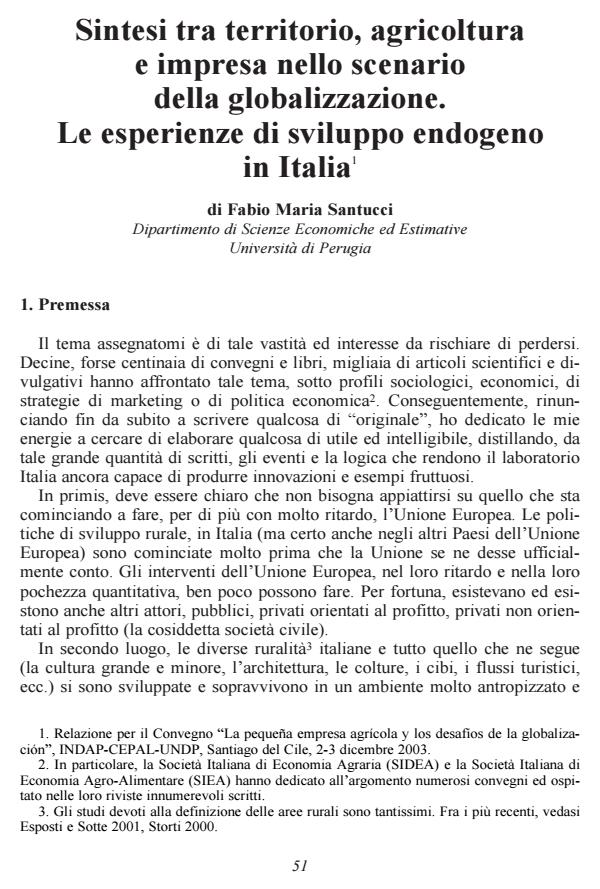Sintesi tra territorio, agricoltura e impresa nello scenario della globalizzazione. Le esperienze di sviluppo endogeno in Italia
Titolo Rivista ECONOMIA AGRO-ALIMENTARE
Autori/Curatori Fabio Maria Santucci
Anno di pubblicazione 2006 Fascicolo 2004/1
Lingua Italiano Numero pagine 36 P. Dimensione file 90 KB
DOI
Il DOI è il codice a barre della proprietà intellettuale: per saperne di più
clicca qui
Qui sotto puoi vedere in anteprima la prima pagina di questo articolo.
Se questo articolo ti interessa, lo puoi acquistare (e scaricare in formato pdf) seguendo le facili indicazioni per acquistare il download credit. Acquista Download Credits per scaricare questo Articolo in formato PDF

FrancoAngeli è membro della Publishers International Linking Association, Inc (PILA)associazione indipendente e non profit per facilitare (attraverso i servizi tecnologici implementati da CrossRef.org) l’accesso degli studiosi ai contenuti digitali nelle pubblicazioni professionali e scientifiche
Italy is rich of success stories where local resources have been used in an intelligent manner, as to favour a lasting development, based on a typical products agriculture, on an intelligent approach to tourism and on the enhancement of local cultures. This paper define such evolution and describes the interventions made by European Union, National Government, Local Entities, private sector and non governmental organizations. Several examples of endogenous and exogenous development are provided, the latter ones based anyhow on the utilization of local resources. The papers first describes the progressive homogenisation of productions and the loss of diversity due to post WWII policies, implemented by the European Union and the Italian Government and then describes the last two decades of European Union interventions, within several initiatives. Consequently, aspects of sustainable development are analysed, like the typical products, the organic farming products, the agro-tourism activities, which are now promoted within the framework of diversification and market segmentation. The main thesis of the Author is that the private initiative, by few innovators, has always lead the way, showing examples that only decades later have became national or European legislation. This was the case for typical products, for agro-tourism and for organic farming. On the other hand, within the existing legal framework, there are wide rooms for improvement and for action, since most farmers and most products still are not certified under any regulation. The Author advocates a stronger link with small and medium scale food processors and with distribution, because these two components of the agro-food chain are also under the attacks of the large international companies. Networking at district level and for agro-food chains appears to be the best solution, to favour synergies among profit oriented operators, non governmental organizations and public entities. Another growing alliance has been established with conscious consumers, who are increasingly aware about relationships between nutrition, health and environment; Italian consumers are searching for better and guaranteed quality and are rediscovering traditional foods and the cultural values of good eating. Consumers associations have already shown their capacities as lobbyists in the food sector and this cooperation should be also enhanced.
Fabio Maria Santucci, Sintesi tra territorio, agricoltura e impresa nello scenario della globalizzazione. Le esperienze di sviluppo endogeno in Italia in "ECONOMIA AGRO-ALIMENTARE" 1/2004, pp , DOI: